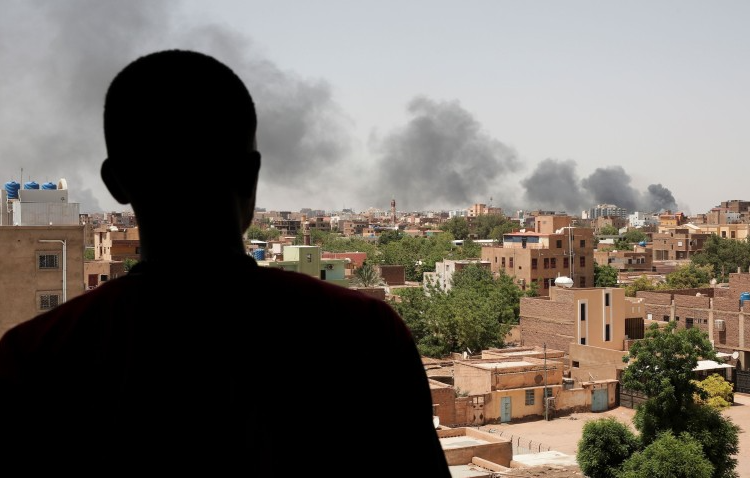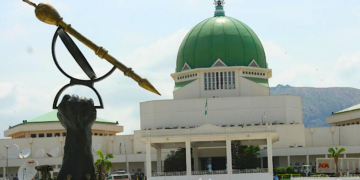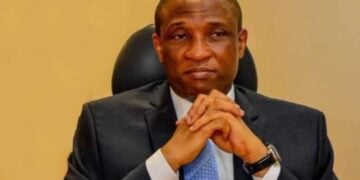The head of Sudan’s army has told the BBC he is willing to talk to the commander of rebel forces whom he is battling for control of the country.
Gen Abdel Fattah al-Burhan said he was ready in principle to sit down with Mohamed Hamdan Dagalo, leader of the Rapid Support Forces (RSF).
The two men have been fighting a brutal internal war since April, which the UN says has left more 5,000 people dead.
It says that more than five million people have been displaced.
Gen Burhan – who seized power in a coup in 2021 – was speaking to the BBC in a rare interview after addressing the UN General Assembly in New York.
He heads the Sudanese Armed Forces (SAF) and is on a global diplomatic tour seeking international support and some kind of legitimacy for his leadership, despite his failure to hand power to civilian authorities.
The general denied his forces were targeting civilians – despite the UN and charities saying there is evidence they are launching indiscriminate air strikes on residential areas.
He said he was confident of victory, but admitted he had been forced to relocate his headquarters to Port Sudan because the fighting in the capital Khartoum had made it impossible for government to continue.
The head of Sudan’s army has told the BBC he is willing to talk to the commander of rebel forces whom he is battling for control of the country.
Gen Abdel Fattah al-Burhan said he was ready in principle to sit down with Mohamed Hamdan Dagalo, leader of the Rapid Support Forces (RSF).
The two men have been fighting a brutal internal war since April, which the UN says has left more 5,000 people dead.
It says that more than five million people have been displaced.
Gen Burhan – who seized power in a coup in 2021 – was speaking to the BBC in a rare interview after addressing the UN General Assembly in New York.
He heads the Sudanese Armed Forces (SAF) and is on a global diplomatic tour seeking international support and some kind of legitimacy for his leadership, despite his failure to hand power to civilian authorities.
The general denied his forces were targeting civilians – despite the UN and charities saying there is evidence they are launching indiscriminate air strikes on residential areas.
He said he was confident of victory, but admitted he had been forced to relocate his headquarters to Port Sudan because the fighting in the capital Khartoum had made it impossible for government to continue.
Gen Burhan said he would sit down with Gen Dagalo – known as Hemedti – as long as he abided by commitments to protect civilians, made by both sides during talks in Jeddah, Saudi Arabia, in May. (BBC NEWS)
“We are ready to engage in negotiations,” Gen Burhan said.
“If the leadership of these mutinous forces has the desire to return to its senses and pull its troops out of the residential areas and return to its barracks, then we will sit with any of them… Whenever he commits to what was agreed in Jeddah, we will sit to resolve this problem.”
In a video message this week, Hemedti also claimed he was ready for political talks.
Both generals have talked about ceasefires before – but so far that has not led to any lessening in the fighting.
Gen Burhan denied Sudan would become a failed state like Somalia – or a divided country like Libya.
“Sudan will remain united. Sudan will remain a state intact, not a failed state. We don’t want what happened in the other countries you mentioned. The Sudanese people are now united behind one cause, ending this mutiny peacefully or by combat,” he said.
The UN has said that neither warring party appears close to a decisive military victory.
Gen Burhan said he was “definitely” confident of defeating the RSF. But he admitted the fighting had forced him out of the capital.
“In Khartoum, diplomatic missions, the ministries and all government organs cannot carry out their duties as normal,” he said. “Because it is a war zone, there are snipers and military operations taking place. That is why no entity can now work in Khartoum.”
There is widespread evidence that civilians in Sudan are dying in indiscriminate air strikes carried out by Gen Burhan’s forces in residential areas, particularly in Khartoum. But the general denied civilians were being deliberately targeted.
“This is not correct,” he said.
“There are fabrications of some stories by the rebel forces, they bomb civilians and film it as if it was the armed forces. We are professional forces, we work with precision and select our targets in areas where only the enemy is present. We don’t bomb civilians and we don’t target residential areas.”
The former UN special representative to Sudan, Volker Perthes, told the Security Council earlier this month that “often indiscriminate aerial bombing is conducted by those who have an air force, which is the SAF”.
The war in Sudan has reignited bitter tribal conflict, especially in Darfur in the west, where the RSF and supportive militias have been accused of mass killings, rape and torture. (BBC NEWS)





